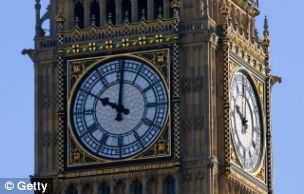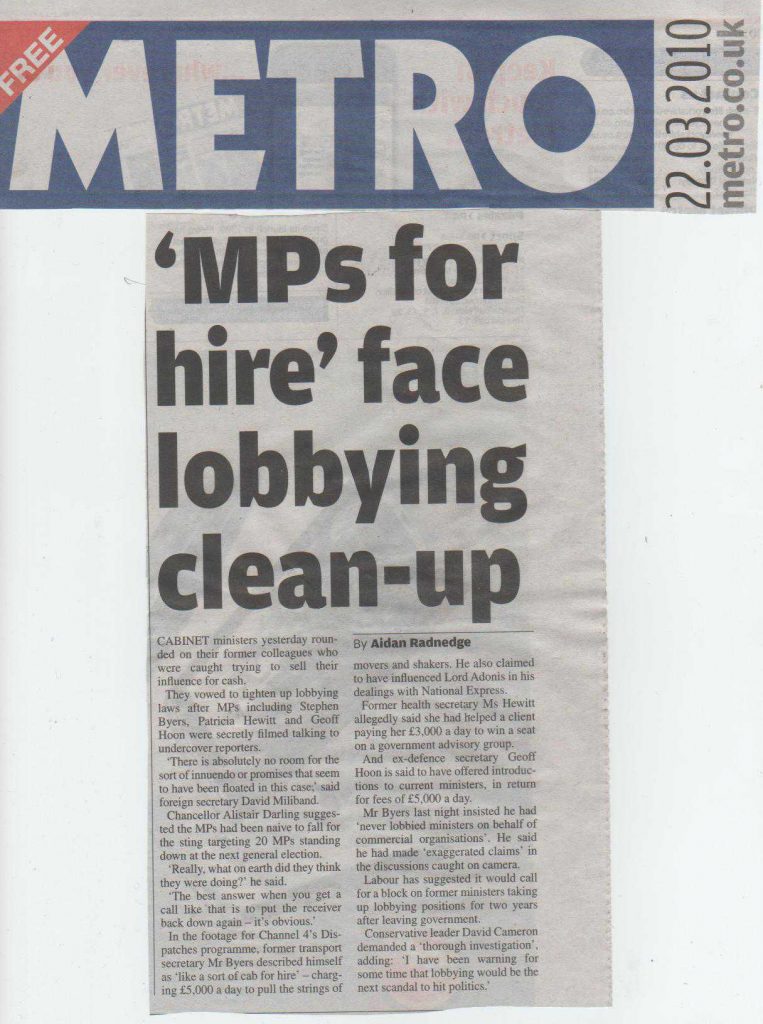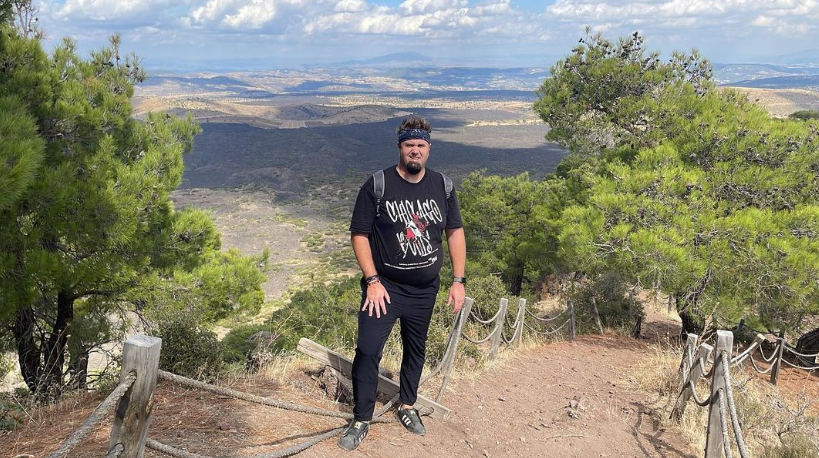[1]
‘MPs for hire’ face lobbying clean-up
Cabinet ministers rounded on their former colleagues, including Stephen Byers, Patricia Hewitt and Geoff Hoon, who were caught trying to sell their influence for cash.

Related Tags:
They vowed to tighten up lobbying laws after MPs including Stephen Byers, Patricia Hewitt and Geoff Hoon were secretly filmed talking to undercover reporters.
‘There is absolutely no room for the sort of innuendo or promises that seem to have been floated in this case,’ said foreign secretary David Miliband.
Chancellor Alistair Darling sugges ted the MPs had been naive to fall for the sting targeting 20 MPs standing down at the next general election.
‘Really, what on earth did they think they were doing?’ he said.
‘The best answer when you get a call like that is to put the receiver back down again – it’s obvious.’
In the footage for Channel 4’s Dispatches programme, former transport secretary Mr Byers described himself as ‘like a sort of cab for hire’ – charging £5,000 a day to pull the strings of movers and shakers. He also claimed to have influenced Lord Adonis in his dealings with National Express.
Former health secretary Ms Hewitt allegedly said she had helped a client paying her £3,000 a day to win a seat on a government advisory group.
And ex-defence secretary Geoff Hoon is said to have offered introductions to current ministers, in return for fees of £5,000 a day.
Mr Byers last night insisted he had ‘never lobbied ministers on behalf of commercial organisations’. He said he had made ‘exaggerated claims’ in the discussions caught on camera.
, 21st March, 2010
[2]
Calls for inquiry into ‘MPs for hire’ scandal
Damian Whitworth, Francis Elliott and Alex Ralph
David Cameron demanded yesterday that Gordon Brown investigate a boast by the former Cabinet minister Stephen Byers that he had used his influence to change policies to favour businesses.
The former Transport Secretary [Lord Adonis], who was secretly filmed offering himself “like a sort of cab for hire” for up to £5,000 a day, will be referred to the parliamentary standards watchdog today.
Mr Byers told an undercover reporter that he had secured secret deals with ministers and said that he received confidential information from No 10 and was able to help firms involved in price fixing to get around the law.
The claims gravely embarrassed Labour, which rushed forward a promise to introduce a compulsory register of lobbying which it said had been planned for the election manifesto.
Thirteen Labour MPs and seven Tories were approached by investigators for Channel 4’s Dispatches and The Sunday Times, pretending to be executives from a fictitious American lobbying firm. The others to feature in the documentary to be screened tonight are Labour’s Geoff Hoon, Patricia Hewitt, Margaret Moran and Baroness Morgan and the Tory MP Sir John Butterfill, who is understood to have boasted about his closeness to Mr Cameron.
Mr Byers was covertly filmed telling the reporter that he would be able to lobby ministers and gave examples of where he had done so before. He said he would charge £3,000-£5,000 a day and claimed he had done a deal with Lord Adonis, the Transport Secretary, to benefit National Express. He later retracted his claims and he, Lord Adonis and National Express all strongly denied any deal yesterday.
All of the MPs filmed, including Ms Hewitt and Mr Hoon, former Cabinet ministers, denied any wrongdoing and insisted that they had breached no rules. “I am confident that any investigation from the Standards Commissioner will confirm that I have always fully complied with the MPs’ code of conduct,” Mr Byers said. “I have never lobbied ministers on behalf of commercial organisations and have always fully disclosed my outside interests.”
Mr Hoon, a former Defence Secretary, reportedly said that he charged £3,000 a day and was looking to turn his knowledge and contacts into “something that frankly makes money”. He said: “At no stage did I offer, nor would I attempt to, sell confidential or privileged information arising from my time in government.”
Ms Hewitt said she “completely rejected” the allegation that she helped to obtain a key seat on a government advisory group for a client paying £3,000 a day.
The Conservatives and the Liberal Democrats said they would table parliamentary questions about the claims in an attempt to see if there had been breaches of the ministerial code.
“I have been warning for some time that lobbying is the next scandal to hit British politics,” Mr Cameron said. “These are shocking allegations. The House of Commons needs to conduct a thorough investigation into these ex-Labour ministers.”
He said that the Prime Minister “would want to get to the bottom of the accusations being made about his Government — and real change is needed”.
Senior Cabinet ministers distanced themselves from their former colleagues.
Alistair Darling, the Chancellor, said it was “ridiculous” that the MPs had been caught out in the sting. “The best answer when you get a call like that is to put the receiver back down again. There are rules about serving MPs — we’ve said that we are going to have to get a statutory-backed code of conduct to deal with former ministers. But really, what on earth did they think they were doing?”
David Miliband, the Foreign Secretary, said that he was “appalled” and added: “There is absolutely no room for anyone to trade on their ministerial office.”
Research by The Times shows eight former ministers have made up to £370,000 in outside work of various kinds since announcing they would be stepping down as MPs. They include John Prescott, John Reid, John Hutton, Alan Milburn and Ms Hewitt. Mr Prescott, former Deputy Prime Minister, has made up to £166,000, mostly through television documentaries and his autobiography.
, March 22, 2010
[3]
[4]
MPs’ foreign visit rules breached
Hundreds of breaches of parliamentary rules by MPs who accepted free overseas trips from foreign governments have been uncovered by a BBC investigation.
More than 20 MPs broke rules on declaring hospitality in questions or debates after visiting locations such as the Maldives, Cyprus and Gibraltar.
Between them, the MPs – from all the major parties – breached parliamentary regulations on more than 400 occasions.
One former standards watchdog says it shows MPs cannot regulate themselves.
Some MPs dismissed the breaches as technical errors or oversights.
However, the former Commissioner for Standards in Public Life, Sir Alistair Graham, told the BBC repeated rule breaches threatened to “undermine the integrity” of the democratic system.
He said it “demonstrated the failure of the self-regulating system of discipline in the Commons” and called for a shake-up of the way MPs’ behaviour is monitored.
“This is a very worrying situation which will further demean the standing of Parliament,” he said.
BBC home editor Mark Easton, who led the investigation, said it would raise further questions about the Commons’ ability to regulate itself.
The rules on overseas visits are there to ensure that no-one can accuse MPs of accepting foreign hospitality in return for political favours, for example pressing the UK government for financial assistance.
They require MPs to register such visits and then declare relevant trips in questions, motions or debates.
One of those who appears to have fallen foul of the code of conduct is Labour’s Andrew Dismore, a member of the Commons Standards and Privileges Committee – the very body which polices MPs’ behaviour.
He broke rules more than 90 times, following annual visits to Cyprus, by failing to declare the hospitality when raising issues about the island in Parliament.
In total, he has tabled more than 200 Commons questions about Cyprus since the last election in 2005, on topics such as missing persons from the island and its victims of past conflict between Turkey and Greece.
The Commons information office estimates it costs on average £149 to answer a written question.
Mr Dismore has also signed motions and led debates about Cyprus. However, he denies any wrongdoing and claims his questions about Cyprus were not sufficiently relevant to his trips to require a declaration.
Conservative David Amess has admitted failing to register a free trip to the Maldives – regarded as a “very serious” breach of the rules by the Committee on Standards and Privileges, according to the MPs’ code of conduct.
He also accepts he did not register a second trip for almost a year, blaming an administrative error by his office staff.
‘Paradise’
During a debate he tabled about the Maldives in 2007, Mr Amess told the Commons how his “splendid visit” had given him “an early taste of paradise”.
“No words can describe adequately just how beautiful the islands are,” he added, before suggesting the UK Government “could be encouraged to do a little more than is being done at the moment” for the islands in the Indian Ocean.
Despite leading two debates about UK support for the Maldives and asking 15 questions about the islands, he failed to declare an interest. Referring to the MPs’ code of conduct, Mr Amess told the BBC: “It is for the member to judge whether a financial interest is sufficiently relevant.”
Liberal Democrat Norman Baker, who has been actively calling for a clean-up of Parliament following the expenses scandal, has admitted breaching the rules on 37 occasions.
In a statement to the BBC, Mr Baker accepts he failed to declare an interest when leading debates and tabling questions about topics such as human rights in Tibet. He has travelled to India twice, courtesy of the Tibet Society and the Tibet government-in-exile.
“I should have then declared a relevant interest in respect of the parliamentary activities you list,” he said. “It is an unintended oversight that I did not.”
The MP who heads the Commons Public Administration Select Committee, Tony Wright, told the BBC that such rule-breaking was “unacceptable” and that the system should be more transparent.
“Declarations should be the norm. It is quite proper for MPs to go on visits. Some of those visits will be financed by foreign governments. But… if they’re lobbying on behalf of governments who have paid for their visits, then clearly we need to know about it.”
The rules are enforced by MPs themselves. Breaches are only investigated if a formal complaint is made and there is no independent body to ensure that members stick to the regulations.
Shadow defence secretary Liam Fox has admitted breaking the rules on two occasions, having visited Sri Lanka five times in the past three years courtesy of its government. He failed to declare the hospitality when asking ministers how much UK aid had been given to Sri Lanka.
In a statement, Mr Fox said: “I should have noted an interest and will be writing to the registrar to make this clear.” He blamed a “changeover of staffing responsibilities” for registering one of his visits more than two months late.
During the current Parliament, Gibraltar’s government has funded 31 trips for MPs to attend an annual street party on the territory.
Street party
Labour’s Lindsay Hoyle has been a guest at these National Day Celebrations three times. Following his visits he has asked 30 questions, tabled three early day motions and signed a further seven, all without declaring his interest.
Mr Hoyle also broke the rules by failing to declare an interest following registered trips to the Cayman Islands and the British Virgin Islands.
“I have never received or sought any financial benefit,” he told the BBC.
Conservative Andrew Rosindell has been a guest of Gibraltar’s government twice in recent years. He subsequently asked 48 questions and signed or sponsored nine motions related to the territory without declaring an interest.
Thirteen of his questions about Gibraltar were before a visit had been registered. The BBC put the matters to Mr Rosindell but has yet to receive a response.
The BBC has identified a further 10 MPs from all three major parties who have been guests of Gibraltar’s government and shortly afterwards breached rules when signing motions or tabling questions about the territory.
The investigation has also identified three more Labour MPs and another Conservative who failed to declare an interest following visits to Cyprus.
MPs who have breached the rules:
David Amess
Norman Baker
Crispin Blunt
Graham Brady
Colin Breed
David Burrowes
Andrew Dismore
Jim Dobbin
Alan Duncan
Liam Fox
Mike Hancock
Lindsay Hoyle
Paul Keetch
Bob Laxton
David Lepper
Andrew Love
Madeline Moon
Mike Penning
Andrew Rosindell
Richard Spring
Theresa Villiers
Rudi Vis
DECLARING FOREIGN TRIPS
- Any MP who has an overseas trip paid for by a foreign government must register it within four weeks
- They must declare a financial interest if it “might reasonably be thought by others to influence the speech, representation or communication in question”
- This includes when tabling questions, motions, bills or amendments, and when speaking out during Commons proceedings
- Members may not, for example, call for increased UK financial assistance to the government which provided the hospitality
- Q&A – MPs’ foreign trips rules
ANALYSIS
By Mark Easton, BBC home editor
The point of the regulations is to ensure that a sceptical citizenry can be confident about the integrity of their elected representatives.
Transparency is key.
The whole system only works if members take this responsibility seriously. Declaration doesn’t imply wrongdoing, but a failure to declare might be interpreted that way.
The widespread abuse of the system uncovered by our investigation suggests some Members of Parliament don’t understand this.
But what really struck me as I conducted the investigation is that the system of scrutiny surrounding the rules clearly does not work.
http://news.bbc.co.uk/1/hi/uk_politics/8580183.stm, 22 March 2010
[5]




 Philip H. Gordon
Philip H. Gordon







